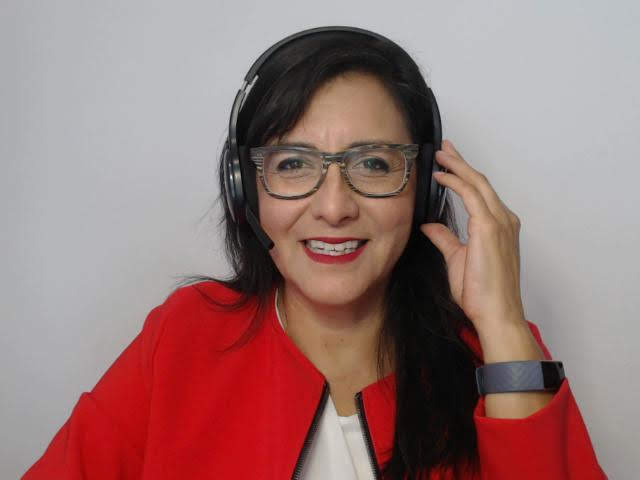You don't have to have perfect language skills to do your job well.
- The English Coach

- Nov 7, 2023
- 3 min read

Did you know Mother Teresa struggled with her faith?
It's true. Her struggle is well documented in her letters to her friends and confidants.
Even as she did the work of God, at times, she was having her own crisis of faith or dark night of the soul.
My point is that many people think they need to be perfect to do a great job at something. Indeed, many people hold Mother Teresa up as a picture of perfection. She was far from perfect, a fact she often admitted herself.
And yet, she helped and inspired a lot of people while running one of the world's most powerful charitable organizations.💫
So, how does Mother Teresa relate to language learning?
Well, have you ever found yourself speaking English, and as soon as you arrive at the middle of your sentence, you start scratching your head in frustration because you can't think of the word you need to say? 🤔
Or rather... You know the word you want to say, but you just can't get it out! 😩
If you've had these moments, you're not alone.😌
This situation is known as a “tip-of-the-tongue” sensation, where you know a word but struggle to remember it at the right moment.
It can feel frustrating, embarrassing, and confusing.
You might risk seeming unprofessional, so today, I'd like to share five strategies to help you in these ‘How do you say?’ moments and improve your language skills.🗣️
1- Describe the word you’re trying to remember
Talk “around” the object, person, or place you’re trying to name.
This strategy, called circumlocution, might help you retrieve the word in question. At the very least, it will help your conversational partner understand your message.
An example of circumlocution would be saying, “Can you grab me the–um–thing that holds my coffee?” Your conversational partner might say, “Your mug? Sure! Here you go.” 🤷♂️
2- Visualize the word you’re trying to recall
Sometimes, you might know the first letter of the word that’s on the tip of your tongue. In these instances, visualize that letter.
In our previous example, you might visualize the letter “m.”
You might also share this detail out loud: “It starts with an m…” 🧠
3-Write a script ahead of time
Do you have an upcoming meeting, presentation, or a meaningful conversation with a loved one?
Try scripting what you want to say beforehand. Write it out and practice it.
You won’t be able to script every conversation, of course, but you can use this strategy when precision is critical. 📝
4- Try to relax
Easier said than done, but try to remain calm if you forget a word.
The more pressure you put on yourself to retrieve the word, the harder it will be. Take a breath and pause.
If the word doesn’t come to you, no problem!
Try another strategy or keep the conversation moving. More likely than not, the word will pop into your head eventually. 🌬️
5- Seek professional help
Language coaches help people with word-finding difficulties. They can provide personalized activities and tasks that will strengthen your recall of words.
Depending on your specific needs, your language coach might use word-chucking techniques. Other tools include mind mapping, visual aids, or active recall practice such as word games, quizzes, or word association exercises. 🗣️
Ultimately, you should remember that CONVERSATION IS A TWO-WAY STREET.
If someone you know is forgetting words, there are things you can do to support them with word-retrieval problems.
Avoid quizzing. While your intentions might be good, asking questions while withholding the answer can be stressful, especially for people with word-finding difficulty.
Keep the conversation going. The ultimate goal of conversation is for two people to connect. Focus on moments of connection with the other person and try not to let interruptions define your interaction with them. 🤝
Word-finding difficulty can be frustrating, but it happens to everyone, myself included. We are all human, and we don't have to be perfect to do our job well.
Next time this happens to you or someone you know or work with, keep these strategies in mind to help improve the conversation.
I hope this helped.
Live Long and Prosper 🖖
✨ Maria
Certified American English as a second language coach and translator
Helping busy professionals and enthusiasts to express themselves confidently and effectively in English.
Feel free to contact me if you would like assistance improving your vocabulary and speaking skills in English through a free Fluency Roadmap mentoring session.



Comments